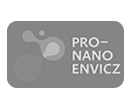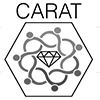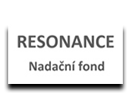Photophysics and Photochemistry of Self-Assembled Nanostructures
Grant Agency
Year from
2010
Year to
2012
The general goal of this project is to construct novel size- and shape-controllable photoactive self-assemblies of high structural integrity and with unique physical a chemical properties. The research includes:
(1) Formulation of new self-assembled nanostructures, design and synthesis of the building blocks.
(2) Solution-phase self-assembly controlled by presence of templates, solvent, pH, temperature, salt concentration, incubation time, and other factors. The formation of various self-assembled structures will be driven by various noncovalent interactions including electrostatic, metal−ligand coordination, π−π interaction, van der Waals, hydrogen bonding, and other type of interaction. The covalent strategy is not in the focus of our studies.
(3) Deposition of self-assembled structures on substrates from solution by drop-casting, spin-coating and Langmuir-Blodgett techniques. Measurement of physicochemical properties, visualization by microscopic method (AFM, TEM, fluorescence microscopy etc.).
(4) Characterization of photoinduced processes both in solution and in the solid state by time–resolved methods covering the time domain extending from femtoseconds to seconds, as well as by steady-state spectroscopic techniques.
(1) Formulation of new self-assembled nanostructures, design and synthesis of the building blocks.
(2) Solution-phase self-assembly controlled by presence of templates, solvent, pH, temperature, salt concentration, incubation time, and other factors. The formation of various self-assembled structures will be driven by various noncovalent interactions including electrostatic, metal−ligand coordination, π−π interaction, van der Waals, hydrogen bonding, and other type of interaction. The covalent strategy is not in the focus of our studies.
(3) Deposition of self-assembled structures on substrates from solution by drop-casting, spin-coating and Langmuir-Blodgett techniques. Measurement of physicochemical properties, visualization by microscopic method (AFM, TEM, fluorescence microscopy etc.).
(4) Characterization of photoinduced processes both in solution and in the solid state by time–resolved methods covering the time domain extending from femtoseconds to seconds, as well as by steady-state spectroscopic techniques.
RNDr. KUBÁT Pavel CSc.
Room
04B, 021
Department
Extension
3076, 3047
E-mail
pavel.kubat jh-inst.cas.cz
jh-inst.cas.cz
 jh-inst.cas.cz
jh-inst.cas.cz















